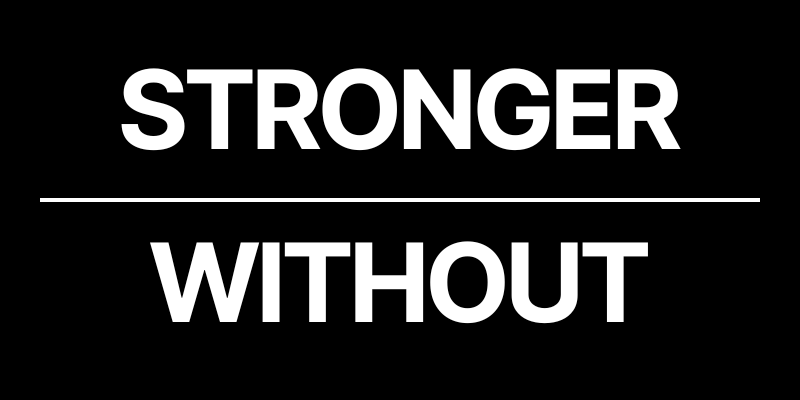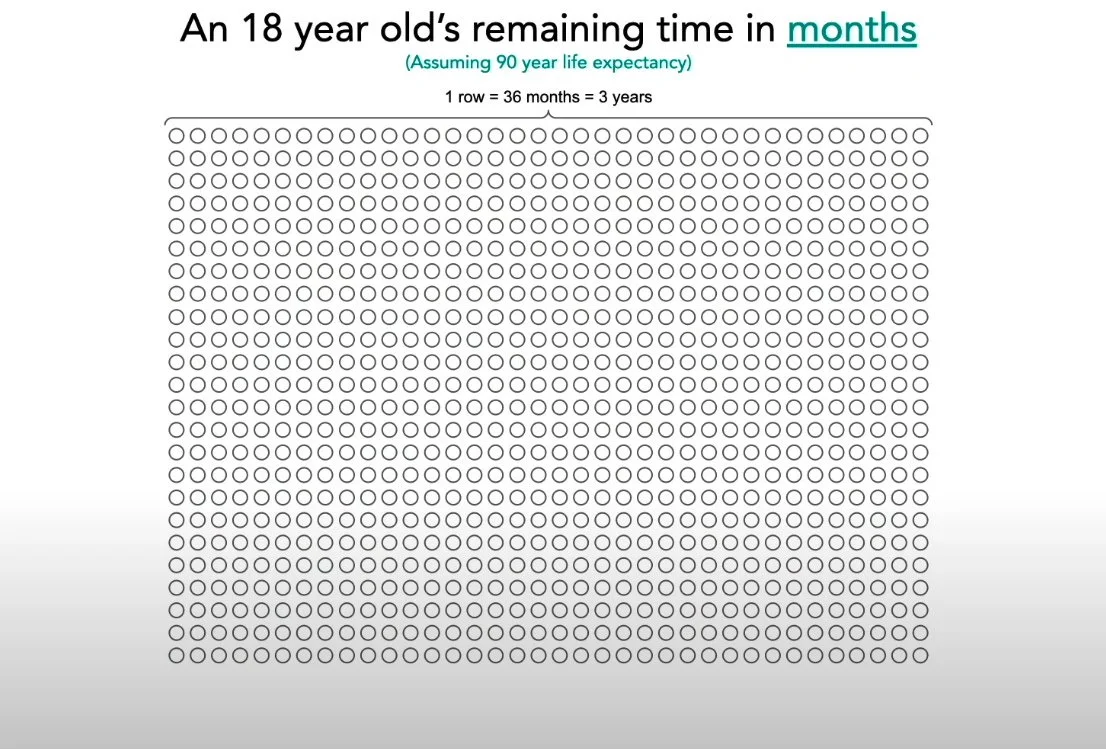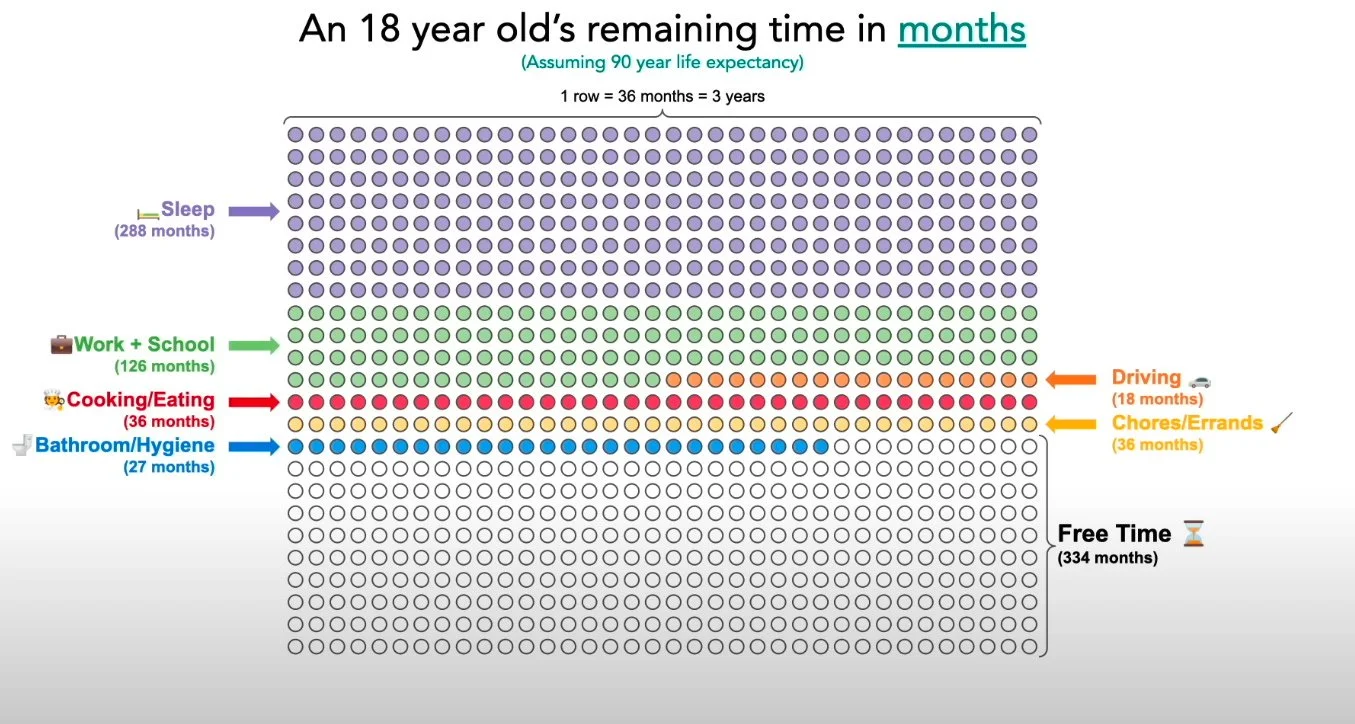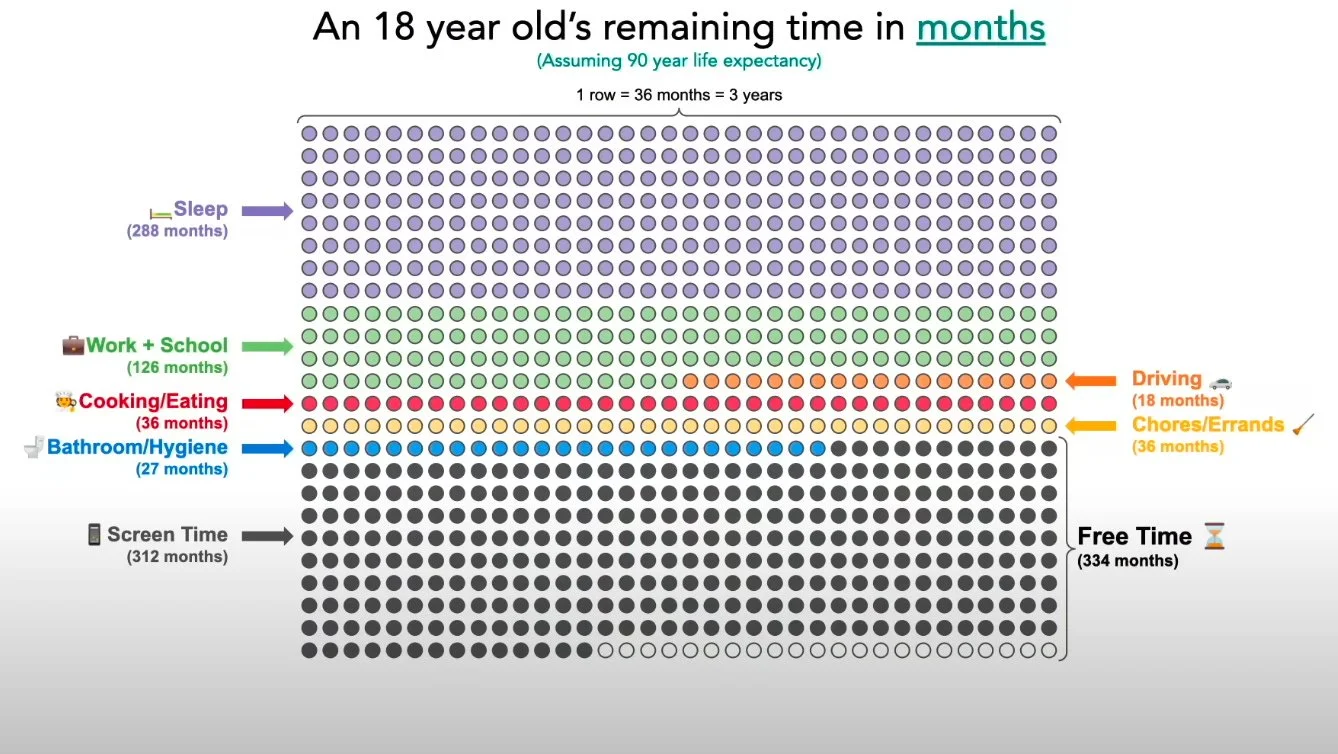What Are We Really Doing With Our Time?
How screens are stealing our lives
Last week, my phone sent me a notification I didn't ask for: "Your screen time was up 23% this week." Eight hours and forty-seven minutes a day, it said. Nearly nine hours of my life, gone to a glowing rectangle.
I stared at that number. Then I did something I'd been avoiding for months. I opened the full report. Social media: 3 hours, 12 minutes. YouTube: 2 hours, 8 minutes. "Productivity" apps: 1 hour, 47 minutes. The rest scattered across news, messaging, and mindless browsing.
I felt sick.
Imagine you're 18 again.
This is your life on a page: each circle represents a month, and if you live to 90, you'll have 864 of them.
Now watch them disappear. Sleep takes 288 circles. Work swallows another 126. Eating, commuting, errands, obligations - there they go. You're left with 334 months of truly free time. Just under 28 years to live the life you actually want.
But here's what I discovered when I did the numbers on my own screen time: I'm giving 312 of those months to screens. More than 26 years of my remaining life, spent staring at pixels.
My grandfather lived through rationing and the Blitz. He built furniture with his hands, painted, whitled statues with his hands, and could tell you the names of every bird that visited his garden.
What am I building with my 3 hours of daily social media? What am I growing during my 2.5 hours of Netflix? What stories will I tell my grandchildren about the time I spent scrolling?
The numbers tell a worrying story we're not ready to hear:
Gen Z (16–24): 4 hours daily on social media
Millennials (25–40): 3 hours daily
Gen X (41–56): 1.5 hours daily
Boomers (57+): 1 hour daily
That extra three hours Gen Z loses compared to their grandparents? That's time previous generations spent learning instruments, having uninterrupted conversations, reading books, walking local footpaths, cooking proper meals from scratch, writing letters, playing football in the park, building model railways, tending gardens, mending things, exploring their own thoughts.
We've traded the entire infrastructure of human development for the dopamine hit of a heart emoji.
Subscribed
I watch my 8-year-old nephew at home on a weekend, and I see the future being written in real time. He scrolls through his phone like he is in a trance.
This is the first generation that will never know what it feels like to be truly bored. They'll never experience the specific discomfort that leads to creativity, the restless energy that makes you pick up a guitar or call a friend or notice the way light falls through windows.
Multiple studies now show that adolescents spending more than three hours daily on social media face double the risk of depression and anxiety. But those statistics feel abstract until you realise what "double the risk" actually means: it's the difference between your teenager having a rough patch and your teenager believing life isn't worth living.
There are warnings galore from the experts.
So why do we keep scrolling?
A few months ago, I tried an experiment. I left my phone at home and went for a walk along the beach, something I hadn't done in years.
The first ten minutes were tough. My hand kept reaching for a pocket that held nothing. I felt phantom vibrations. I caught myself looking around for something to photograph, someone to text about what I was seeing.
But then something shifted. I noticed a Victorian terraced house I'd walked past hundreds of times. I really noticed it. The way morning light caught in its sash windows. The sound my footsteps made on different surfaces. The fact that I could hear birdsong over the traffic.
By the end of that 45-minute walk, I felt more like myself than I had in months.
I started small after that. One meal without my phone on the table. One morning without immediately checking social media. One conversation where I didn't feel the urge to document it.
Each tiny rebellion against the screen revealed something I'd forgotten: the texture of real life. The way thoughts develop when you're not constantly interrupting them. The surprising things people say when you're actually listening.
Here's what I want you to try, and I want you to try it today:
Week 1: Take one 30-minute walk without your phone. Leave it at home. Walk a local footpath, visit a park, or simply wander your neighbourhood. Notice what happens in your mind when you can't reach for distraction.
Week 2: Eat one meal each day without any screens. No phone, no TV, no laptop. If you're alone, practice being alone. If you're with others, practice being with them.
Week 3: Establish one hour each morning before you check any social media. Use this time for something that requires your full attention. Reading, writing, exercise, conversation.
Week 4: Take a full day off from social media each week. Not just putting your phone in another room, but actually staying off the platforms. Notice what you do with the time instead.
I'm not suggesting you become a digital hermit. I'm suggesting you become intentional about the 26 years of your life you're currently giving away without thinking about it.
Because here's what I've learned in the months since I started paying attention: when you stop constantly consuming other people's lives, you start living your own.
You remember what your own thoughts sound like. You rediscover what it means to be present in your own body, in your own relationships, in your own moment. You start building things again. Conversations, skills, memories that exist independent of any platform.
You get your life back.
The 864 circles are still there, waiting. The choice of how to fill them is still yours.
But only if you make it consciously.
Only if you make it now.
Sources:
Inspired by visuals from Wait But Why
Images are taken from this video: The Battle for Your Time: Exposing the Costs of Social Media | Dino Ambrosi | TEDxLagunaBlancaSchool



